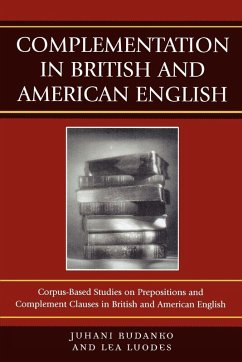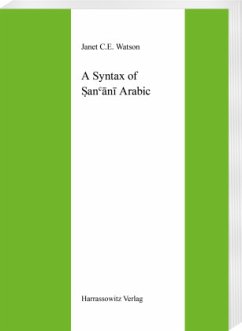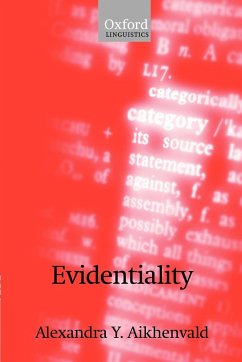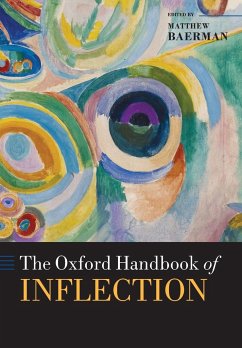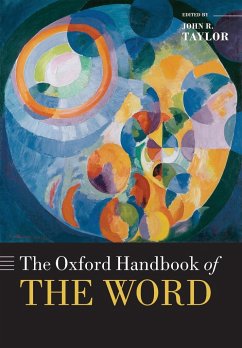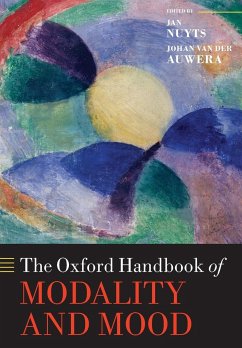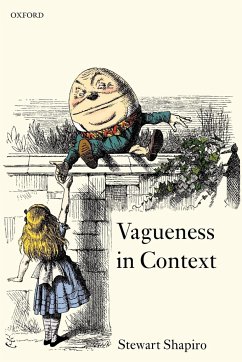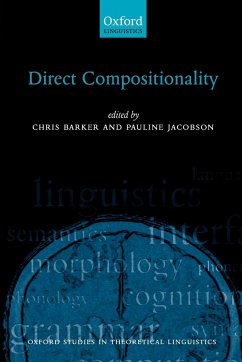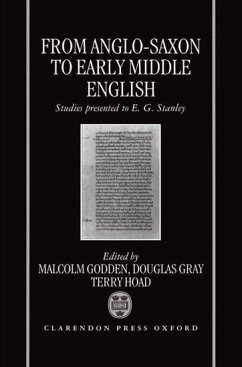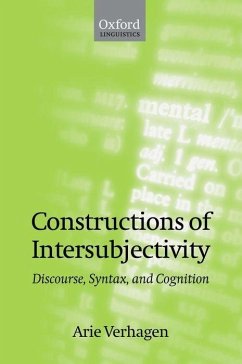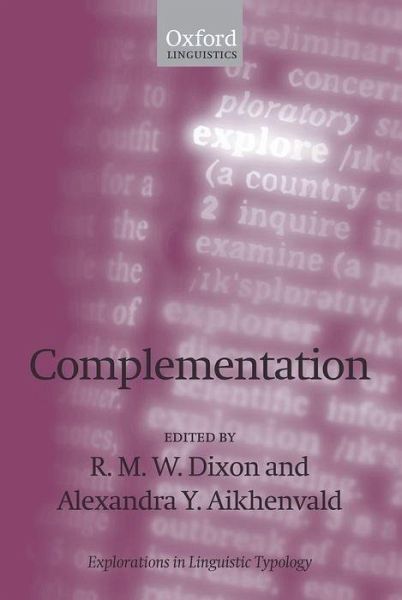
Complementation
A Cross-Linguistic Typoloy
Herausgeber: Dixon, R. M. W.; Aikhenvald, Alexandra Y.
Versandkostenfrei!
Versandfertig in 1-2 Wochen
72,99 €
inkl. MwSt.

PAYBACK Punkte
36 °P sammeln!
A complement clause is used instead of a noun phrase; for example one can say either I heard (the result) or I heard (that England beat France). Languages lacking complement clauses employ complementation strategies to achieve similar semantic results. Detailed studies of particular languages, including Akkadian, Israeli, Jarawara, and Pennsylvania German, are framed by R.M. W. Dixon's introduction, which sets out the range of issues, and his conclusion, which draws together the evidence and the arguments.



